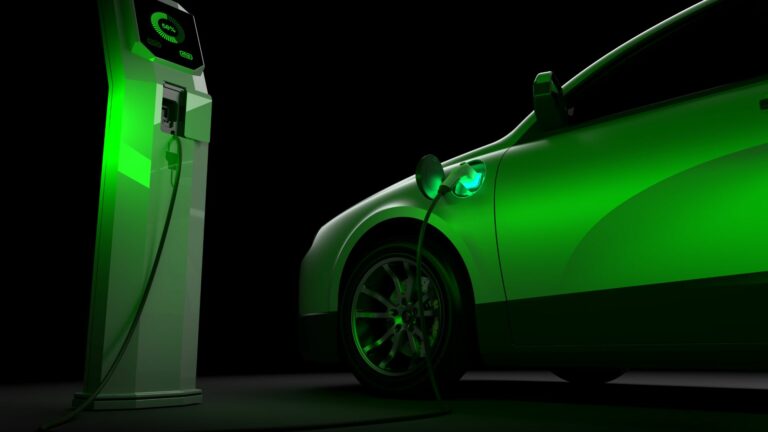Renault and Geely bet on a Spanish engine to revitalize internal combustion

Renault and Geely have set their sights on an innovative Spanish technology that promises to revolutionize the world of internal combustion engines. Through Horse Powetrains, the collaboration with INNengine allows for the exploration of the potential of the e-Rex engine, a remarkably lighter and more powerful engine. This development offers a cutting-edge approach for the automotive industry, especially in applications for hybrid and extended-range electric vehicles, positioning itself as a key element in the search for sustainable and efficient mobility solutions.
The automotive industry is in constant evolution, and in this context, Renault and Geely have focused on an innovative engine developed by the Spanish company INNengine. This revolutionary engine, known as the e-Rex, has caught the attention of the joint venture of the two automotive giants due to its unique design and potential benefits for sustainable mobility. The e-Rex is a potentially transformative solution that promises to overcome the limitations of conventional engines and set new standards in terms of efficiency and performance.
A revolutionary and compact design
The e-Rex engine is distinguished by its architecture of opposed pistons, eliminating the need for traditional components like the crankshaft, the cylinder head, and valves. This structure allows it to be lighter and more compact than conventional two-stroke or four-stroke engines. In comparison, the e-Rex is 70% smaller and lighter than a standard four-stroke engine, also offering twice the power of a two-stroke engine and four times that of a four-stroke.
International interest and collaboration
Renault and Geely, through their joint venture Horse, have recognized the disruptive potential of the e-Rex engine and have partnered with INNengine to explore its application in various mobility sectors. The involvement of the Saudi oil company Aramco in Horse also highlights the interest in developing mechanics suitable for new sustainable fuels. The partnership aims not only to leverage the innovative characteristics of the e-Rex but also to contribute to the advancement of cleaner combustion technologies.
Testing and future prospects
Before moving to commercial implementation, two units of the e-Rex engine are being evaluated in the Clean Mobility and Thermofluids laboratories of the Polytechnic University of Valencia. These tests are crucial to validate the performance and efficiency promises of the engine, and are a fundamental step before Horse acquires the manufacturing and marketing license. The aim is to verify the performance of the e-Rex in a controlled environment to ensure its suitability for large-scale applications.
Commitment to innovation and sustainability
Julien Faure, technical director of Horse, has expressed his enthusiasm for the collaboration with INNengine, noting that the architecture of the e-Rex could significantly change the dynamics of current combustion technology. This project underscores Horse’s commitment to innovation and foundational research, seeking to provide more affordable, efficient, and sustainable mobility solutions in a global context.
For his part, Roberto Lendaro, executive director of INNengine, has also expressed his satisfaction at finding in Horse a partner that shares their bold vision for the future of hybrid mobility. Such collaborations are essential to boost innovation in the automotive industry and propose a clear roadmap towards a more sustainable future.
For more information on advancements in electric mobility, visit this link. Additionally, if you’re interested in learning about other alternatives and developments in current engines, you can explore these related contents.
Renault and Geely: A New Era for Internal Combustion
The agreement between Renault, Geely, and the Spanish company INNengine represents a significant step in revitalizing internal combustion technology, a strategy that allows these companies to innovatively tackle current sustainability challenges. The involvement of Horse, a consortium that includes collaboration from Renault, Geely, and the Saudi company Aramco, shows a concerted approach towards implementing greener solutions through new sustainable fuels.
The e-Rex engine, which stands out for its lightness and power, perfectly aligns with Renault and Geely’s vision of seeking alternatives to conventional engines while preserving energy efficiency. With an opposed piston design that eliminates the need for traditional components like the crankshaft, cylinder head, or valves, this engine represents an ideal option for extended-range electric vehicles, hybrids, and even drones. The Spanish innovation not only offers a more efficient product but also, in its conception, redefines the industry standards by providing a ‘one-stroke’ engine.
The collaboration between INNengine and Horse also highlights a shared commitment to continuous innovation and basic research. This is crucial for developing technologies that are not only more efficient but also can be produced and marketed globally, thereby contributing to more accessible and sustainable mobility solutions.
As the two initial units of the engine enter the testing phase at the Polytechnic University of Valencia, it is clear that this alliance benefits not only the companies involved but also marks an important precedent in the automotive world. The hope for a revolution in internal combustion, led by these collaborations, presents a unique opportunity to observe how innovation can reshape a technological field historically resistant to change.



